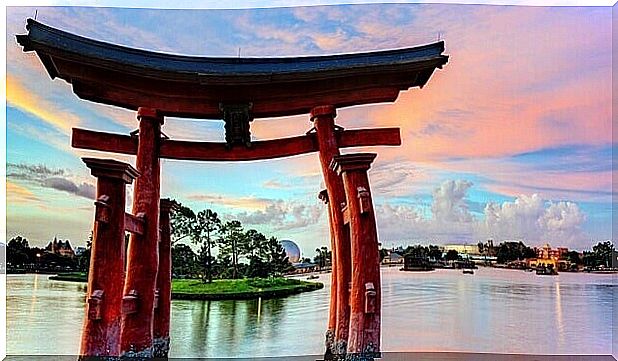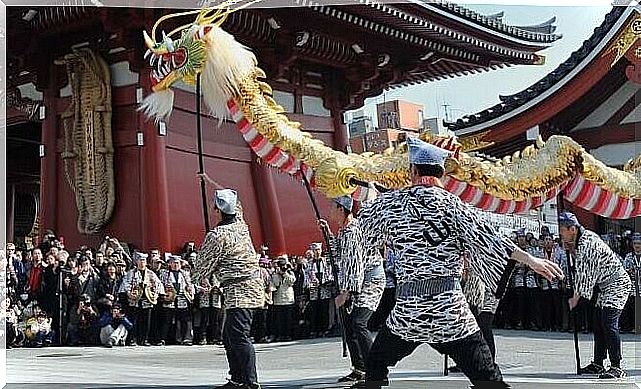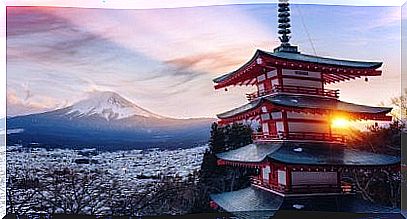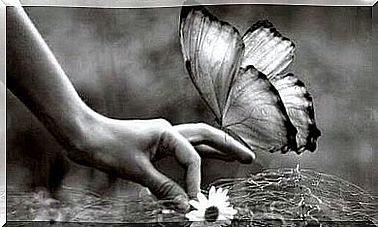10 Fantastic Japanese Proverbs

Japanese proverbs are very popular all over the world. They have been used in the country of the rising sun since time immemorial to guide everyday life. Many of them managed to cross borders. Today, they are remembered around the world, although many do not know their origins.
Most Japanese proverbs have their origins in rural areas. Therefore, many of them make reference to natural beauty. They reflect what is learned from the sun, water, river and even rocks. All have an unmistakable poetic touch. In fact, they were also taken up by philosophy and religion.
Japanese proverbs are very cryptic. Eastern cultures are very discreet. That’s why most of his proverbs use few words and leave a lot to the imagination. They convey a serene and patient worldview. Below, we share 10 of these fantastic wisdom capsules.
Japanese proverbs about action
Several Japanese proverbs talk about action. For Orientals, activity is not impulsiveness or compulsion. Thought and action go hand in hand, one complementing the other. So they say, “If you think about something, decide. If you decided, don’t think about it.”

The Japanese concept of speed is perfectly reflected in this proverb: “Fast means: slow, but without pause” . It is clear that for this culture, speed has more to do with efficiency than with accelerated actions.
Many people mistakenly think that Eastern cultures are passive. Quite the opposite. What happens is they see the action from another perspective. It is no coincidence that many Japanese proverbs call for action while setting a limit for it, as in this beautiful phrase: “Do everything you can, leave the rest to fate”.
kindness to others
Japanese people have a deep sense of the collective. The other is an almost sacred place. Many of their customs guide the preservation of respect and consideration for others. That’s why they deeply value gentle expressions: “A kind word can warm three winter months.”
Respect for others is also enshrined in many Japanese proverbs. This is one of them: “Check seven times before questioning a person.” This is an appeal to avoid small judgments about others.
The serene attitude of Orientals is often confused with a lack of passion. It’s not like this. In fact, they are very passionate and joyful. The following proverb, for example, places great value on joy: “ Happiness comes to the house where you laugh”. It’s a fact: laughter calls for harmony, and this one, happiness.
About the paths of personal growth
The community and cooperative sense of the Japanese is perfectly enshrined in this proverb: “The sun doesn’t know about the good guys, the sun doesn’t know about the bad guys. The sun illuminates and warms everyone equally. Whoever finds himself is like the sun”. It is understood that a solid identity is reflected in the full acceptance of others and the world.

Another Japanese proverb says: “If you ask, you will feel ashamed for a minute. If you don’t ask, you’ll be ashamed for life.” There is great wisdom represented here: it is a very private society; however, in sentences like this, a limit is set for this discretion.
the slowness and waiting
Japan carries a millenary past. They learned to understand and appreciate the passage of time. They know that the most important and genuine of life takes time. This is expressed by the fantastic proverb: “The deep rivers flow slowly”. This means that everything that has depth manifests itself little by little.
The Japanese know that patience is a defining virtue. In their own flesh they have experienced that triumph and failure depend to a great extent on it. They put it this way: “Victory belongs to the one who waits half an hour longer than his opponent.” So, for them, triumph always belongs to the most patient.
This is just a very small sampling of some of the most popular Japanese proverbs. There are hundreds of them waiting to be rediscovered. We have a lot to learn from this culture, which has known how to be remarkable in many historical periods, and also knew how to rise from its ashes when reality demanded it.









